Hidradenitis suppurativa: How to cope when depression hits
If you’re having suicidal thoughts, call the National Suicide Prevention Hotline
Free, confidential, and available 24/7, this hotline connects you to someone who understands what you’re feeling and knows how to help.

Everyone feels sad or blue at some point in their life. If feelings of sadness, hopelessness, or apathy last for two weeks or longer, you may have depression.
Studies reveal that depression is common in people who have hidradenitis suppurativa (HS). The pain, inflammation, and emotional stress of having this disease all seem to play a role in causing depression.
Several studies confirm that people who live with chronic (long-term) pain often have depression. Pain is a common symptom of HS. The lumps that develop beneath the skin are often painful. Without proper treatment for HS, the painful lumps grow, burst open, and return. When this cycle continues for a long time, you develop a condition called chronic pain.
Because HS primarily develops in the underarms, groin area, around the anus, and beneath the breasts, it can take an emotional toll. Having painful lumps in these areas can feel embarrassing. When these lumps break open and leak foul-smelling liquid onto clothing, many people say they feel ashamed.
Fortunately, you don’t have to live with depression. It’s a treatable medical condition.
Steps recommended to overcome depression
While it can feel like nothing can stop depression or control HS, research proves otherwise. In studies, dermatologists and other doctors have found that the following can help:
See a dermatologist for treatment of HS. Dermatologists run many of the HS research studies. In study after study, they’ve discovered that when a patient gets effective treatment for HS, the depression also subsides.
It can take time to find a treatment that works for you. A customized treatment plan is often what works best. You can learn more about how dermatologists treat HS at, Hidradenitis suppurativa: Treatment.
If you need a dermatologist, you can locate one in your area at Find a dermatologist.
In some areas of the United States, you can find an HS specialty clinic. To see if there’s one in your area, go to Hidradenitis Suppurativa Specialty Clinics.
If you cannot afford medical care, a free clinic may also be able to help you. You can find a free clinic in the U.S. at:- Find a clinic (National Association of Free and Charitable Clinics)
- Find a health center (U.S. Department of Health and Human Services)
- Free/Low-Cost/Sliding-Scale Clinics (Needy Meds)
Ask your dermatologist about controlling the odor. Many people who’ve enrolled in HS studies say that the foul-smelling liquid that spills onto their clothes causes them to feel humiliated and uncomfortable. Because HS flare-ups can be so unpredictable, some people avoid social situations altogether.
Being alone most of the time can worsen depression.
Dermatologists understand how to treat the odor and can give you tips for controlling it.Join an HS support group. If you don’t already belong to an HS Support Group, consider joining one.
In a research study that followed 165 people with HS for eight months, the researchers found that getting support from others who have HS can improve a patient’s quality of life. People say they feel better about themselves and life in general. Most people in this study participated in an HS support group for about two hours per week.
To find a support group for people living with HS, visit Hope for HS.Get treatment for the depression. While it can feel like the sadness will never go away, depression is a treatable medical condition. Many people are helped by psychotherapy alone. Studies show that psychotherapy tends to have a longer-lasting effect than medication and is often the way that patients prefer to treat depression. Combining psychotherapy with medication can be effective for some patients.
In recent years, many patients have been receiving psychotherapy by meeting with a counselor through a mobile app. Studies show that it can be just as effective as face-to-face therapy.
Small steps lead to big gains
If you feel overwhelmed, that’s okay. Depression can make you feel that way. Start by doing something that you feel you can tackle now. Make an appointment to see a dermatologist or check out a support group. Starting small can put you on the road to recovery.
Image
Getty Images
References
Alavi A, Farzanfar D, et al. “The contribution of malodour in quality of life of patients with hidradenitis suppurativa.” J Cutan Med Surg. Mar/Apr 2018;22(2):166-74.
American Psychiatric Association, “What is depression?” Page last accessed July 30, 2020. Page last reviewed Jan 2017.
Bowers J. “Tailor-made care.” Dermatol World. 2020;30(7);114-9.
Cuijpers P, Quero S, et al. “Psychological treatment of depression in primary care: Recent developments.” Curr Psychiatry Rep. 2019 Nov 23;21(12):129.
Gaynes B. “Assessing the risk factors for difficult-to-treat depression and treatment-resistant depression.” J Clin Psychiatry. 2016 Feb;77 Suppl 1:4-8.
Kirby JS, Butt M, et al. “Association of resilience with depression and health-related quality of life for patients with hidradenitis suppurativa.” JAMA Dermatol. 2017 Dec 1;153(12):1263-9.
Machado MO, Stergiopoulos V, et al. “Depression and anxiety in adults with hidradenitis suppurativa: A systematic review and meta-analysis.” JAMA Dermatol. 2019 Jun 5;155(8):939-45.
Patel KR, Lee HH, et al. “Association between hidradenitis suppurativa, depression, anxiety, and suicidality: A systematic review and meta-analysis.” J Am Acad Dermatol. 2019 Dec 18;S0190-9622(19)33299-2. doi: 10.1016/j.jaad.2019.11.068. [Online ahead of print].
Scheinfeld N. “Hidradenitis suppurativa: A practical review of possible medical treatments based on over 350 hidradenitis patients.” Dermatol Online J. 2013 Apr 15;19(4):1.
Schneider-Burrus S, Agata Jost A, et al. “Association of hidradenitis suppurativa with body image.” JAMA Dermatol. 2018;154(4):447-51.
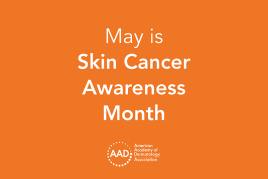 Think sun protection during Skin Cancer Awareness Month
Think sun protection during Skin Cancer Awareness Month
 How to care for your skin if you have lupus
How to care for your skin if you have lupus
 Practice Safe Sun
Practice Safe Sun
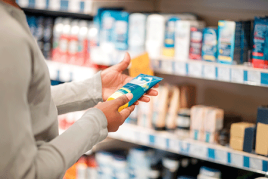 Sunscreen FAQs
Sunscreen FAQs
 Fade dark spots
Fade dark spots
 Hidradenitis suppurativa
Hidradenitis suppurativa
 Laser hair removal
Laser hair removal
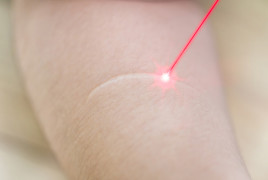 Scar treatment
Scar treatment
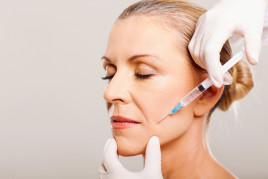 Botox
Botox
 Kids' camp - Camp Discovery
Kids' camp - Camp Discovery
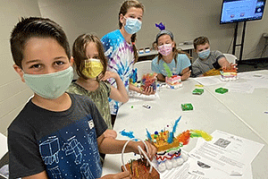 Dermatologist-approved lesson plans, activities you can use
Dermatologist-approved lesson plans, activities you can use
 Find a Dermatologist
Find a Dermatologist
 Why choose a board-certified dermatologist?
Why choose a board-certified dermatologist?